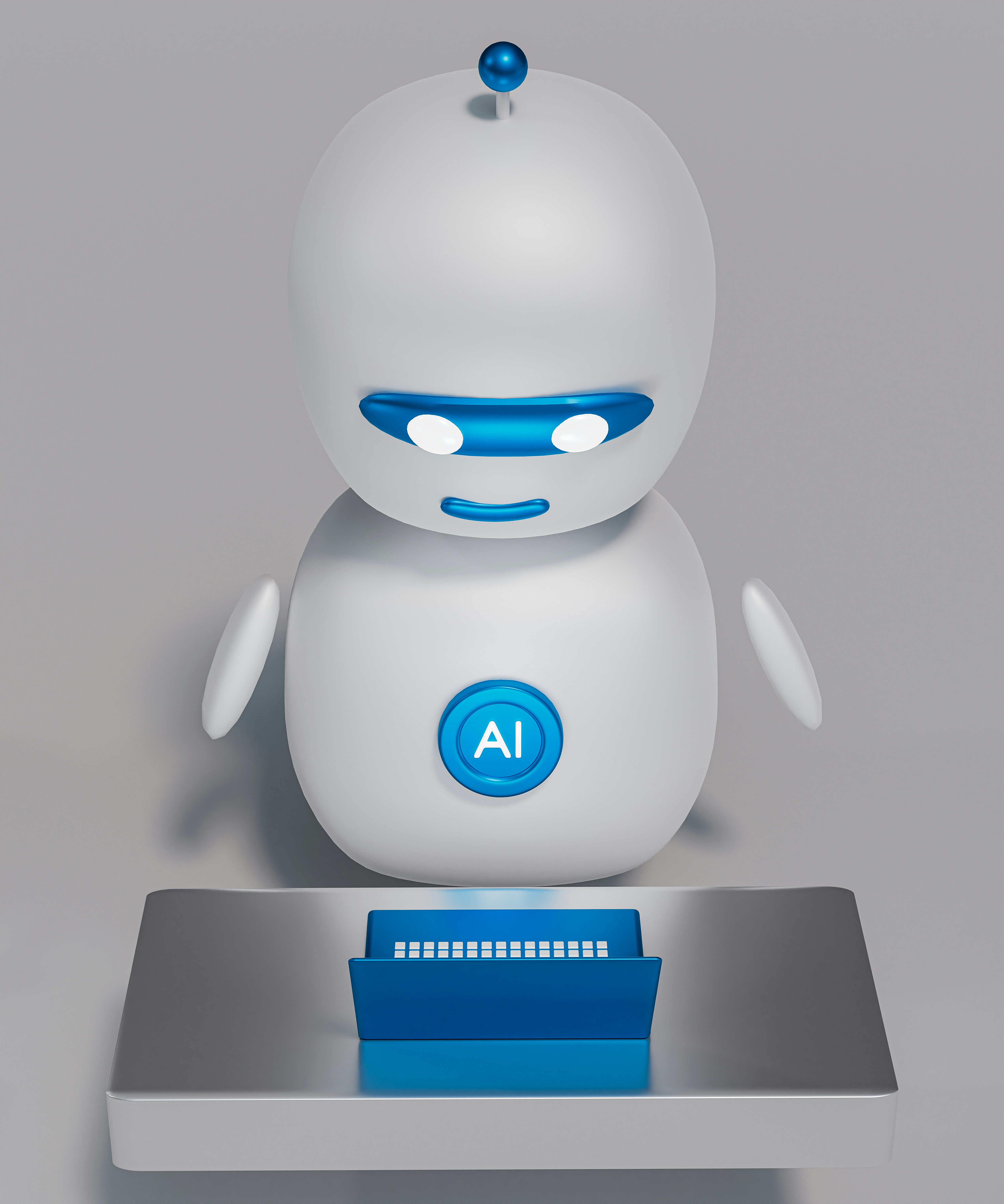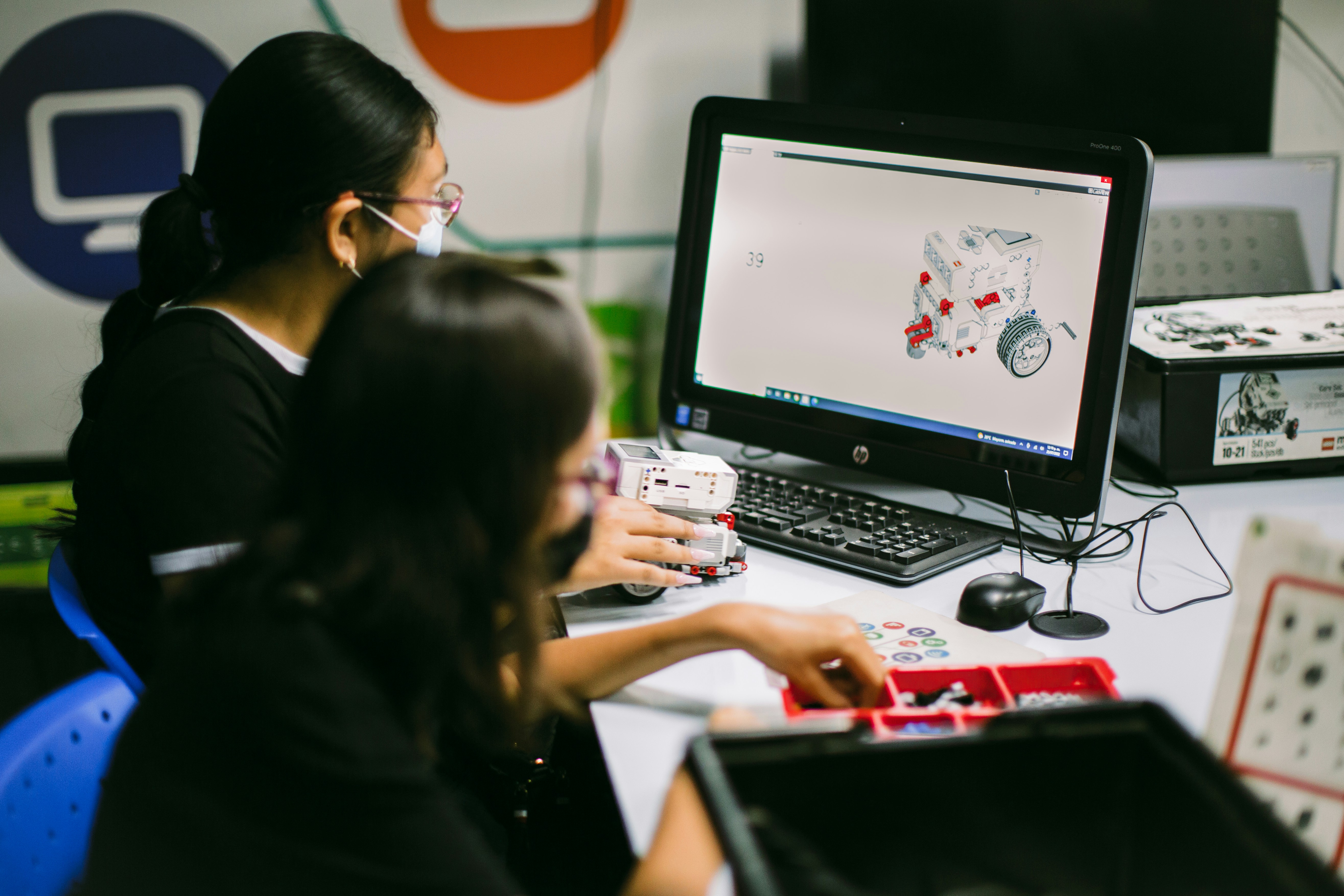💰 Powerful Spells for Wealth & Prosperity
Attract money, success, and financial abundance with real magic spells that bring results fast.
Introduction to AI Code Assistants
AI code assistants represent a significant advancement in the realm of software development, offering innovative solutions for programmers. These intelligent tools utilize artificial intelligence to aid in various coding tasks, enhancing both productivity and the overall quality of code. The evolution of programming has transitioned from manual coding methods to automated processes, allowing developers to focus on more complex problem-solving aspects of their work. Traditional programming was heavily reliant on the expertise and labor of individual developers, often resulting in time-consuming efforts and potential for human error.
With the incorporation of AI-driven tools, the landscape of programming has changed dramatically. AI code assistants can understand context, provide code suggestions, and even generate entire code snippets based on user input. This capability is pivotal in fostering an environment where coding becomes more efficient, as it not only accelerates the writing process but also minimizes the likelihood of common mistakes. Moreover, these tools adapt over time, learning from user behavior to offer increasingly relevant support, which is particularly beneficial for both novice and experienced programmers.
The significant rise in code assistants is punctuated by their versatile applications, ranging from simple tasks like syntax correction to more complex functions such as debugging and optimizing existing code. As a result, AI code assistants have emerged as essential companions in the programming journey, allowing developers to navigate challenges and achieve higher-quality results with less strain. In this context, the role of AI tools transcends mere convenience; they represent a fundamental shift towards the future of programming, highlighting the critical intersection of human ingenuity and advanced technology.
How AI Code Assistants Work
AI code assistants leverage several advanced technologies to enhance programming efficiency and accuracy. Central to their functionality are machine learning algorithms, which are designed to analyze vast amounts of code data. By training on diverse codebases, these algorithms learn to recognize patterns, decipher coding styles, and identify common practices across different programming languages. As developers write code, the AI assistant can offer real-time suggestions, helping to streamline tasks and reduce the likelihood of errors.
Natural language processing (NLP) also plays a critical role in how these tools function. This technology enables AI code assistants to interpret and understand human queries in natural language. When a developer types a question or requests assistance, the assistant uses NLP to interpret the intent behind the query, matching it with relevant coding solutions. This capability allows the AI to interact seamlessly with developers, facilitating a more efficient coding experience by making suggestions or providing corrections pertinent to the code being written.
Pattern recognition complements these technologies by allowing AI code assistants to spot similarities between the current code and historical examples. When faced with a specific coding challenge, the assistant can cross-reference existing code snippets that it has encountered in the past, effectively recommending solutions based on learned context. This method not only improves the accuracy of suggestions but also helps in understanding the overall structure of code, leading to better-tailored assistance for developers.
By combining machine learning, natural language processing, and pattern recognition, AI code assistants are quickly becoming indispensable tools for programmers. These technologies work synergistically to enhance coding workflows, reduce coding errors, and ultimately empower developers to produce high-quality code efficiently.
Benefits of Using AI Code Assistants
The integration of AI code assistants into the programming workflow presents a multitude of advantages that can significantly enhance the coding experience for developers at all levels. One of the primary benefits is the improvement in coding efficiency. AI assistants can generate code snippets, suggest improvements, and automate repetitive tasks, allowing programmers to devote more time to problem-solving and creative aspects of development. By automating mundane coding activities, developers can focus on more complex and engaging projects, fostering innovation within their teams.
Error reduction is another pivotal advantage offered by AI code assistants. These tools can analyze code in real-time, identifying potential bugs and suggesting fixes before deployment. This proactive approach to debugging not only saves time but also enhances the overall quality of the final product. As a result, AI code assistants contribute to reducing the time spent on debugging and improving software reliability, which is crucial in today’s fast-paced development environments.
Additionally, AI code assistants provide extensive learning opportunities for beginners in the programming field. By leveraging these tools, novice programmers can gain insights into best coding practices, receive instant feedback, and access a wealth of resources that may not be readily available through traditional learning methods. This interactive learning experience can significantly improve a beginner’s coding skills, providing them with the confidence and knowledge necessary to tackle more advanced challenges.
Moreover, AI code assistants are adept at managing repetitive tasks that often bog down the development process. By taking over these routine elements, they free up developers’ time, enabling them to focus on strategic planning and innovative design. The amalgamation of efficiency, error reduction, and enhanced learning opportunities ultimately positions AI code assistants as indispensable tools in the evolving landscape of programming.
Challenges and Limitations of AI Code Assistants
As the integration of AI code assistants into the programming landscape becomes increasingly prevalent, it is essential to address the accompanying challenges and limitations that these tools pose. One primary concern revolves around accuracy. AI code assistants are designed to analyze vast amounts of data and generate suggestions or snippets based on recognized patterns. However, these recommendations may not always align with optimal coding practices or specific project requirements, leading to potential errors in logic or functionality that could compromise the overall quality of the code.
Furthermore, the reliance on AI tools can create an unintended dependency among developers. As programmers begin to rely heavily on AI code assistants for routine coding tasks, there is a risk of diminishing problem-solving skills and a reduced understanding of fundamental programming principles. This decline in skill development can be particularly troubling for junior developers who may not receive adequate practice in critical thinking or debugging techniques, essential competencies in the coding profession.
Ethical considerations also play a vital role in the conversation surrounding AI code assistants. The potential for plagiarism and the misappropriation of code snippets generated by these AI systems raises questions about intellectual property rights and the authenticity of the work produced. Additionally, there is an inherent risk that biases present in training data can perpetuate stereotypes or reinforce existing disparities within programming communities.
Lastly, AI code assistants often struggle with understanding the context and nuance inherent in specific coding tasks. Programming tasks can vary significantly based on the project context, team dynamics, and user requirements. AI tools, which lack deep contextual awareness, may fail to recognize subtle distinctions in requirements, leading to suggestions that are misaligned with project goals. This limitation underscores the necessity for human oversight even when using these sophisticated tools.
Real-World Applications of AI Code Assistants
Artificial Intelligence (AI) code assistants have transcended beyond theoretical possibilities to become integral components in various programming environments. Tech companies and development teams today actively utilize these tools to enhance their software development processes, drastically improving efficiency and productivity. A notable case study demonstrating this shift is that of Microsoft, which has integrated AI-driven tools such as GitHub Copilot into its development workflow.
GitHub Copilot leverages machine learning algorithms to suggest code snippets and provide real-time support to developers while they write code. Developers at Microsoft have reported increased speed in coding tasks and fewer instances of bugs, showcasing how AI code assistants can ameliorate the coding experience. With the demand for rapid software deployment increasing, tools like Copilot help teams maintain an edge in delivering high-quality products on time.
Furthermore, the finance industry has adopted these assistants to streamline processes such as algorithmic trading and risk assessment. Companies like Bloomberg utilize AI code assistants to analyze large data sets, allowing financial analysts to focus on strategic decision-making rather than mundane coding tasks. This has resulted in improved accuracy and faster responses to market changes, significantly boosting productivity and efficiency.
Similarly, in the healthcare sector, AI code assistants such as Google’s AutoML are making significant strides. They assist medical professionals in building customized machine learning models for predictive analytics, clinical diagnosis, and resource management. These implementations not only save time but also enhance the precision of healthcare applications, ultimately contributing to improved patient outcomes.
In conclusion, the deployment of AI code assistants across various industries is reshaping software development processes. By facilitating quicker coding and reducing errors, these innovative tools are proving essential for organizations seeking to advance their capabilities and drive success in the dynamic landscape of technology.
🛡 Powerful Protection Spells That Shield From Harm
Safeguard yourself, loved ones, and your home from negative energy and spiritual threats with effective, trusted protection spells.
The Future of AI Code Assistants
As we look towards the future, the role of AI code assistants is poised to transform dramatically, reflecting significant advancements in artificial intelligence technology. These tools, which currently assist developers by suggesting code snippets and debugging errors, are expected to evolve into more sophisticated systems capable of undertaking comprehensive programming tasks autonomously. This evolution is driven by ongoing research in machine learning, natural language processing, and neural networks, which together can enhance the capabilities of AI code assistants, making them indispensable in various programming environments.
Future developments may allow AI code assistants to understand not only the syntax of programming languages but also the context and intent behind code written by developers. This progression could lead to the creation of more intuitive programming environments where these assistants serve as collaborative partners, offering real-time feedback, code reviews, and even complete project architecture suggestions. By simplifying complex coding processes, AI code assistants could significantly reduce the time developers spend writing and debugging code, thereby increasing productivity and fostering innovation.
Moreover, the integration of AI code assistants into educational settings is likely to reshape the way new developers are trained. Educational institutions could leverage these advanced tools to provide personalized learning experiences, offering students adaptive challenges based on their skill levels. Such tools could also analyze student coding patterns, providing targeted recommendations for improvement and aiding instructors in delivering more effective teaching methods. As programming becomes increasingly essential across various fields, AI code assistants will undoubtedly play a pivotal role in cultivating the next generation of software developers, equipping them with advanced skills needed in a rapidly changing technological landscape.
Integration with Development Environments
In recent years, AI code assistants have increasingly been integrated into popular Integrated Development Environments (IDEs) and code editors, fundamentally altering the programming landscape. These enhancements not only streamline tasks but also promote a more productive workflow for developers. One of the primary advantages of AI code assistants is their ability to provide contextual suggestions as developers write code. By analyzing the syntax and semantics of the code in real time, these tools offer relevant recommendations, which can significantly reduce the time spent on debugging and increase overall efficiency.
Moreover, the ease of use associated with these integrations is notable. Developers can readily access AI functionalities within their existing development platforms without needing to learn new systems or tools. This seamless integration ensures that programmers can leverage AI code assistants to enhance productivity while maintaining their individual coding styles and preferences. Many IDEs now support AI features natively, enabling features such as code completion, automatic testing, and sophisticated error detection without interrupting the user’s workflow.
Additionally, accessibility is a key aspect of AI code assistant integration. Developers with varying levels of experience can benefit from these tools, as they often come equipped with tutorial features and intelligent prompts that guide users through coding challenges. This inclusive approach helps bridge the skills gap in software development, allowing novices to improve their coding skills at a faster pace while experienced developers can harness AI to tackle more complex problems efficiently.
Customization options further enhance the integration of AI code assistants into development environments. Many platforms allow developers to configure settings based on their specific needs, such as adjusting the frequency of suggestions or tailoring the types of advice received. This flexibility ensures that AI tools complement individual preferences and workflow strategies, making them an invaluable asset in modern programming.
Comparative Analysis of Leading AI Code Assistants
The rapid evolution of artificial intelligence has led to a diverse array of AI code assistants that cater to various programming needs. Prominent tools in this space include GitHub Copilot, Tabnine, and Kite, each offering unique features and functionalities that appeal to different segments of programmers. A comparative analysis of these tools provides valuable insights into their strengths and weaknesses, which can guide developers in selecting the most suitable option for their projects.
GitHub Copilot, a product developed in collaboration with OpenAI, stands out for its integration with popular code editors, including Visual Studio Code. Its ability to suggest entire functions based on comments makes it particularly appealing for developers looking to enhance productivity. However, user feedback indicates that it sometimes generates irrelevant or incorrect suggestions, necessitating careful review of its outputs.
Tabnine, on the other hand, offers a more customizable AI experience with its deep learning models trained on local codebases. This allows it to provide context-specific suggestions that many users find beneficial. However, the reliance on user-provided data may lead to inconsistent performance across different programming environments. Users often appreciate its focus on privacy, which is a notable strength for developers concerned about data security.
Kite offers a unique benefit with its emphasis on documentation and quick access to libraries, making it a suitable choice for developers who prioritize learning and exploration. Users have reported that Kite can significantly reduce the time spent searching for API references, but it may not always match the code completion precision provided by its competitors.
In conclusion, selecting the right AI code assistant requires careful consideration of individual programming needs and preferences. While each tool has its merits, understanding their functionalities will help developers effectively leverage AI in their coding practices, thereby improving efficiency and collaboration in programming tasks.
Tips for Maximizing the Use of AI Code Assistants
Utilizing AI code assistants effectively can significantly enhance programming productivity and improve code quality. To maximize the benefits of these innovative tools, developers should adopt several practical strategies. Firstly, it’s essential to integrate AI assistants into daily coding practices seamlessly. This involves using these tools for tasks such as writing boilerplate code, generating documentation, and suggesting code snippets, allowing developers to focus on more complex and creative aspects of their projects.
Another important practice is to leverage AI for code reviews. AI code assistants can quickly analyze code for common errors, suggest improvements, and ensure adherence to style guidelines. However, it is crucial to complement this automated analysis with human judgment. While AI can accurately identify syntax errors or potential bugs, developers should engage in critical thinking and apply their domain knowledge to understand the context of the code. This hybrid approach helps ensure that the final product meets both technical and business requirements.
Moreover, it’s beneficial to utilize the learning capabilities of AI code assistants. By frequently engaging with these tools, programmers can grasp coding patterns and best practices that the AI has detected from large datasets. Over time, this interaction can facilitate a better understanding of coding conventions and enhance overall programming skills. However, programmers must also remain vigilant about the limitations of AI. There will be instances where human intuition and experience are necessary to make nuanced decisions, particularly in high-stakes or complex projects.
In summary, by effectively integrating AI code assistants into daily routines, utilizing them for code reviews, and maintaining a balanced reliance on both AI capabilities and human insight, developers can fully harness the potential of these advanced tools, leading to a more efficient and innovative programming experience.









